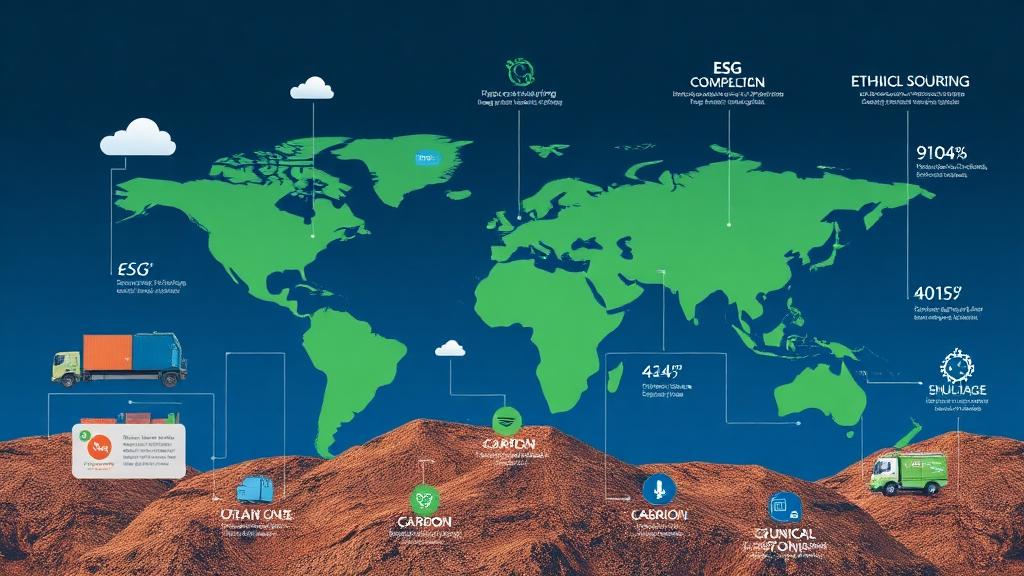Building Resilient Supply Chains through Data Transparency and Sustainability

The Imperative of Traceability
In an era of heightened consumer awareness and regulatory scrutiny, supply chain traceability has evolved from a nice-to-have to a business imperative. Modern consumers demand to know the origin of products, the conditions under which they were produced, and their environmental impact. Companies that can’t provide this transparency risk both reputation damage and regulatory penalties.
Traceability enables businesses to track products from raw material sourcing through manufacturing, distribution, and delivery, verify the authenticity and quality of components and materials, respond quickly to recalls or quality issues, and demonstrate compliance with regulations and industry standards.
Ethical Sourcing in the Modern Supply Chain
Ethical sourcing goes beyond compliance—it’s about building supply chains that respect human rights, protect the environment, and create sustainable value. Key considerations include fair labor practices throughout the supply chain, environmental stewardship in sourcing and manufacturing, conflict-free minerals and responsible raw material procurement, and supplier diversity and community impact.
Analytics plays a crucial role in ethical sourcing by providing visibility into supplier practices, identifying high-risk suppliers or regions, monitoring compliance with ethical standards, and enabling data-driven decision-making in supplier selection.
ESG Compliance and Risk Management
Environmental, Social, and Governance (ESG) criteria have become central to supply chain management. Companies face increasing pressure from investors, customers, and regulators to demonstrate ESG compliance.
Environmental Metrics
Analytics helps track carbon emissions across the supply chain, energy consumption and renewable energy usage, water usage and waste management, and packaging sustainability and circular economy initiatives.
Social Responsibility
Data-driven approaches monitor workplace safety and employee wellbeing, diversity and inclusion in the supply chain, community engagement and impact, and fair wages and working conditions.
Governance Standards
Robust analytics ensures transparent reporting and accountability, ethical business practices and anti-corruption measures, data privacy and security compliance, and board oversight of sustainability initiatives.
Sustainable Practices Through Technology
Modern technology enables several sustainable practices including carbon tracking with detailed carbon footprint analysis across all supply chain activities, route optimization to minimize emissions, supplier carbon scoring and incentivization, and automated carbon reporting for stakeholders and regulators.
Paperless workflows have digitalized all procurement and logistics documentation, electronic signatures and approvals, cloud-based collaboration and document sharing, and automated compliance documentation and archiving.
Alignment with U.S. Government Initiatives
SmartChain Solutions aligns with several key U.S. government initiatives:
Department of Energy (DOE) Programs
Our platform supports the DOE’s focus on energy-efficient logistics, renewable energy integration in supply chain operations, supply chain resilience for critical materials, and clean energy technology deployment.
Small Business Administration (SBA)
We support the SBA’s goals for building resilient small business supply chains, promoting supplier diversity and inclusion, enabling access to supply chain financing, and providing training and resources for supply chain management.
Building True Resilience
Resilient supply chains combine transparency, sustainability, and risk management. They can withstand disruptions, adapt to changing conditions, maintain ethical standards under pressure, and deliver long-term value to all stakeholders.
Data analytics is the foundation of this resilience, providing the visibility, insights, and agility needed to navigate an increasingly complex global landscape while meeting sustainability goals and stakeholder expectations.
Ready to Transform Your Supply Chain?
Discover how SmartChain Solutions can help you implement these strategies
